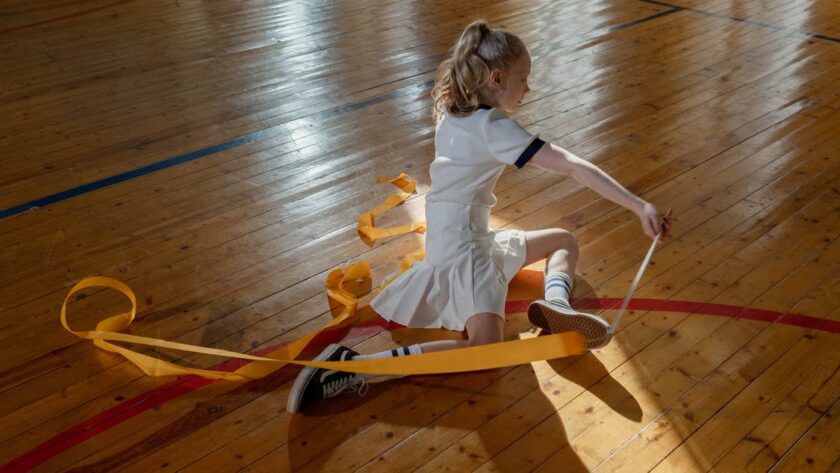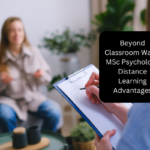In this day and age, it’s easy to forget the importance of physical education. With so much emphasis on standardized test scores and academic achievement, it’s easy to let P.E. fall by the wayside. However, research has shown time and time again that students who are physically active perform better academically than their sedentary counterparts. In this article, we’ll explore what physical education is and why it’s such an important part of a well-rounded education.
What is physical education?
Physical education is a vital part of a student’s education. It helps them not only learn about their bodies and how to take care of them but also develops lifelong skills and habits that will benefit them in the future. Proper physical education can help students maintain a healthy weight, develop strong muscles and bones, improve their cardiovascular health, and more. In addition, Enhance your career in physical education by staying up-to-date on the latest research and teaching methods. physical education can also help students learn important life skills such as teamwork, cooperation, and communication.
The benefits of physical education
Physical education is important for a number of reasons. It helps children and adolescents develop physically, learn how to maintain their health, and provides them with the skills and knowledge they need to lead active healthy lives.
Physical activity is essential for good health. It can help children and adolescents control their weight, build strong bones and muscles, reduce their risk of developing chronic diseases such as heart disease, stroke, and type 2 diabetes, and improve their mental health.
In addition to the physical benefits of physical education, it also helps children and adolescents develop other important skills. Self-directed learning in physical education empowers students to take charge of their own learning. For example, they learn how to set goals, plan and execute activities, cooperate with others, and manage their time and resources. All of these skills are important in both academic and real-world settings.
Physical education also provides children and adolescents with an opportunity to socialize and make new friends. This is especially important for those who are shy or have difficulty making friends.
Finally, physical education can help children and adolescents develop a positive attitude towards physical activity. This is important because it can encourage them to be active throughout their lives.
Physical education in schools
Physical education is an important part of a child’s education. It helps them develop their physical skills and become more active and healthy adults. It is also a great way for children to socialize and learn how to work together as a team.
There are many benefits to having physical education in schools. It can improve a child’s overall health, increase their fitness level, and reduce obesity rates. It can also lead to better academic performance and improved social skills.
However, there are also some drawbacks to having physical education in schools. Some children may not be interested in it and may find it boring. It can also be disruptive to the school day if it is not well-planned.
If you are considering adding physical education to your child’s school curriculum, it is important to weigh the pros and cons carefully. There is no one right answer, but you should make sure that you are providing your child with an opportunity to be physically active and healthy.
In conclusion, physical education in schools has many benefits that outweigh the drawbacks. It is an important part of a child’s education and can help them develop physically, academically, and socially.
Creating a physical education program
As a parent, you may be wondering what physical education is and why it’s important. Physical education is a critical part of a child’s education, teaching them the importance of leading a physically active lifestyle. A well-rounded physical education program will help children develop the skills they need to be physically active throughout their lives. It will also instill in them the importance of taking care of their bodies and staying healthy.
There are many benefits to having a physical education program in schools. First, it helps children develop physically. They learn how to use their bodies and develop the coordination and motor skills needed to participate in physical activity. Second, it helps children develop socially. They learn how to work together as a team and how to resolve conflict. Third, it helps children develop emotionally. They learn how to manage their emotions and cope with stress. Finally, it helps children develop cognitively. They learn how to set goals, plan ahead, and stay focused.
A well-rounded physical education program will offer a variety of activities for children to participate in. These activities should be developmentally appropriate and should challenge children at their individual levels. Some examples of activities that can be included in a physical education program are running, jumping, etc.
Tips for incorporating physical education into your life
Physical education is an important part of a child’s education, but it’s also important for adults to stay active and get regular exercise. Here are some tips for incorporating physical education into your life:
1. Make time for it: Just like with anything else in life, you need to make time for physical activity. Schedule it into your day just like you would any other appointment.
2. Find an activity you enjoy: If you don’t enjoy the activity you’re doing, you’re not likely to stick with it. So find something that you really enjoy, whether it’s playing tennis, going for a run, or taking a dance class.
3. Set realistic goals: Trying to accomplish too much too soon is one of the main reasons people give up on their fitness goals. Start small and gradually increase your activity level as you become more comfortable with it.
4. Make it social: Invite friends or family members to join you in your activities. Not only will this help keep you motivated, but it can also make exercising more fun.
5. Be consistent: One of the most important things when it comes to staying fit is being consistent with your physical activity. Make it a part of your daily routine and you’ll be more likely to stick with it.
Conclusion
Physical education is an essential part of a well-rounded education. It helps students develop the skills and knowledge they need to lead active, healthy lives. Just as importantly, physical education teaches students important life lessons like teamwork, sportsmanship, and perseverance. For all these reasons, physical education is an essential part of every student’s education.
While it’s important for students to get regular physical education at school, it’s also important for adults to stay active and exercise regularly. Physical activity has many benefits, including improved physical health, mental health, and cognitive skills. So make time for physical activity in your day-to-day life and you’ll reap the benefits for years to come.
Author’s Bio:
Amardeep Sudadar is a web blogger at Re-Reality. He writes various content on his blog based on his experience and knowledge. He writes blogs related to self-motivation, science and technology, and Education, and so on.




